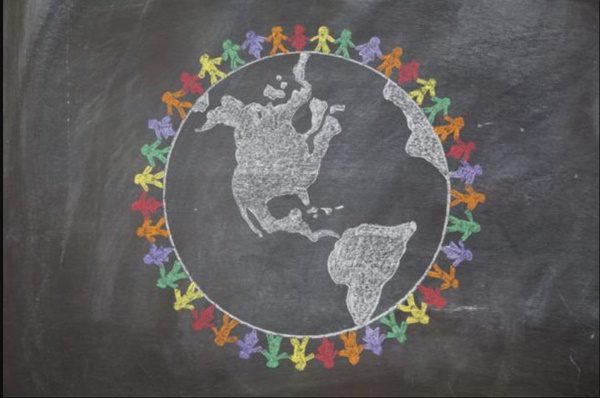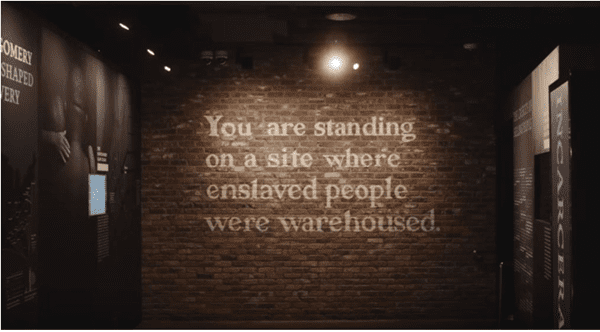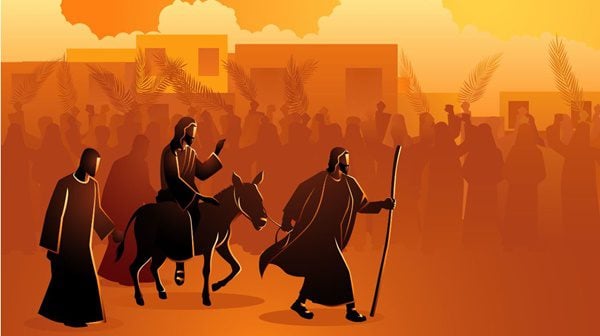
The 10 Commandments are central to the Judeo-Christian tradition. And yet for many of us they seem antiquated. But for their time, and for ours, they provide a huge step forward in the human understanding of God.
Take the First Commandment, for example – “You shall have no other gods before me.” If you are like me, you have often wondered if this commandment shows that God has a massive ego problem. I mean, what’s the big deal with those “other gods”? Is God the cosmic narcissist? It’s as if God is whining, “ME! ME! ME! YOU MUST BELIEVE IN ME BECAUSE I’M SPECIAL!!!”
But I’ve noticed that once we put this commandment in its context, we discover a fresh way of interpreting it. We also re-discover how it has led to the transformation of the human understanding of God.
The 10 Commandments were given to the Israelites just after they left Egypt. The Exodus claims that the Egyptian Empire oppressed the Israelites for generations, enslaving them to make bricks so that Egypt could create bigger buildings and expand its empire.
In ancient Egypt, religion and empire were embedded. Egyptian theology claimed that the gods were on the side of Egypt. The gods of Egypt were the gods of the oppressors. The brutal conditions of slavery were justified in the name of the gods. The pharaohs were believed to be the manifestation of the high Egyptian god known as Ra. In fact, they were called the “sons of Ra.” If you wanted to know what Ra was like, simply look to the power and dominance of the Egyptian pharaohs.
The historical and theological context of the Egyptian Empire helps us better understand the First Commandment. We generally know the commandment as, “You shall have no other gods before me,” but that’s just the second part of the phrase. The whole commandment in Deuteronomy is, “I am the Lord your God, who brought you out of the land of Egypt, out of the house of slavery; you shall have no other gods before me.”
Now we can understand that the commandment “You shall have no other gods before me” doesn’t mean that God has an ego problem. Rather, that commandment refers directly to the gods of Egypt. The true God of Israel is not like the gods of Egypt who justified oppression. Rather, the liberation theologians have it right – God is in the liberation business. God brings us “out of the land of Egypt, out of the house of slavery.”
The Exodus tells us that God is on the side of the oppressed. This is a massive shift in the human understanding of God. Just like in the days of ancient Egypt, we tend to think that if you want to see where God is, look to those in power – the presidents, prime ministers, kings and other political rulers of the world. But the Exodus tells a different story. If you want to know where God is, look to those who are oppressed because there you will find the true God who works for liberation.
But the Bible is very honest about how the people of God quickly fell into the trap of believing in other gods – the gods that lead to oppression and violence against the poor, weak, and marginalized. And so the biblical prophets repeatedly warn Israel’s political leaders not to become oppressors, not to become like Egypt. Part of the Bible’s genius is that it contains the politically subversive voice of the prophets that not only critiques oppressive political policies, but also reveals how God continues to work for liberation.
Far from an antiquated relic of the past, the First Commandment is as important today as it was in ancient Israel. Unfortunately, a brief history of the United States shows how quickly we were to believe in the gods of oppression. For example, last week we celebrated Columbus Day, what many now call Indigenous People’s Day. When I was growing up, I learned history in such a way that Columbus “discovered America,” as if the Indigenous People hadn’t already been here for many thousands of years. But in the name of God, the United States enacted Manifest Destiny, which justified killing Native Americans and stealing their land.
Of course, whenever any government oppresses a marginalized group, it doesn’t act in the name of the liberating God of Israel. That government, in this case, the United States, acts in the name of the gods of oppression.
Shameful as that history is, I wish I could tell you that the United States’ government no longer has other gods before the liberating God of Israel. But the United States continues to believe in the gods of oppression. We continue to steal land that belongs to Native Americans.
Just this year, in 2015, Congress passed legislation that steals Native American holy land that happens to be rich in copper and transfers it to an Australian mining company. That land is in Arizona. It’s called Oak Flat, and according to MSNBC, it is the “Mount Sinai of the San Carlos Apache, a place where the equivalent of the Holy Spirit came to earth. It functions like an outdoor church, mosque or synagogue … The Society of American Archaeology says the Apache have been there ‘since well before recorded history.’”
No matter. The United States Government continues to act toward Native Americans like the Egyptian Empire acted toward the Israelites. Our Government continues to oppress Native Americans by continuing to break the eight commandment and stealing their land. The Apache have cried out in protest. And we need to hear their cry, because the fact is that God is listening. Like the God of liberation heard the cry of the Israelites under Egyptian oppression, God hears their cry and is working for justice and liberation on their behalf.
For more, read Eric Buys’ article “Jesus Christ, Narcissist?” And then read everything else Eric Buys writes. He’s brilliant.
Stay in the loop! Like Teaching Nonviolent Atonement on Facebook!











